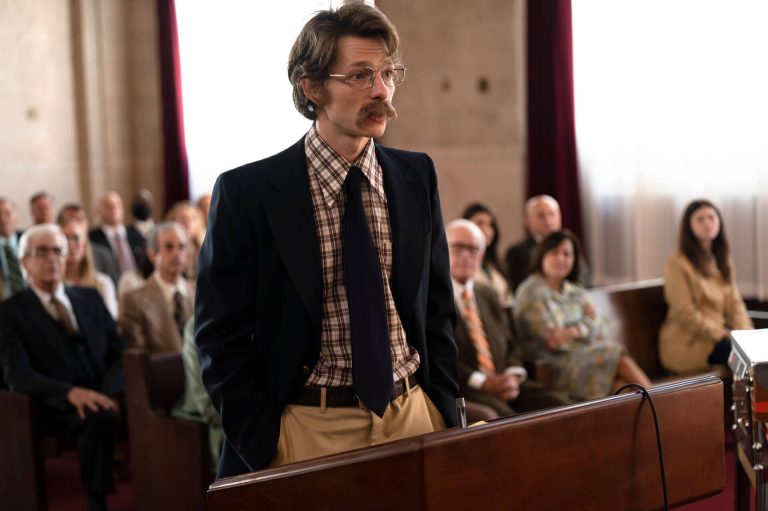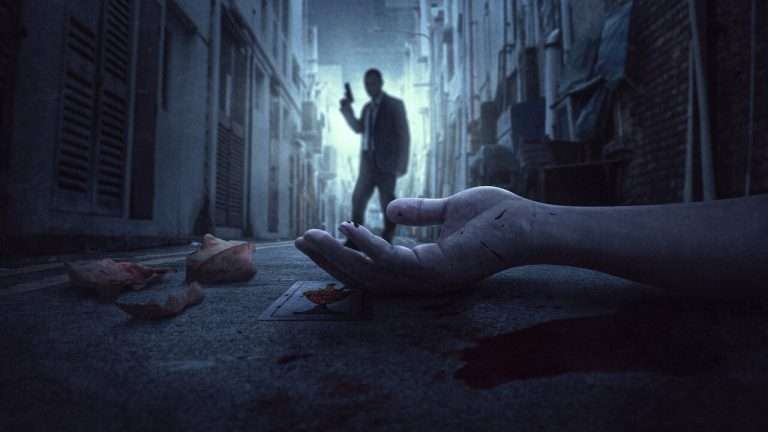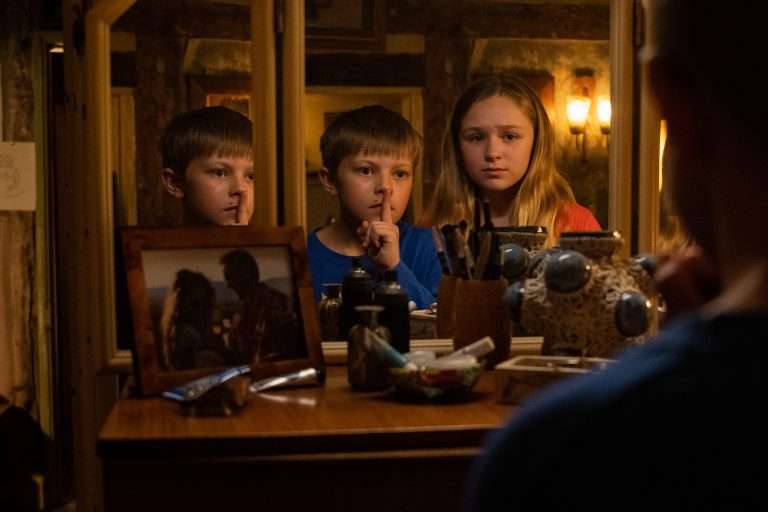When The Sopranos cut to black in 2006, it felt like a conscious decision by creator David Chase, to stop focusing on the Sopranos antics and violence, the bottomless pit of violence, greed, and power that is Tony Soprano, and while that ending is racked with ambiguity; after 20 years hindsight would suggest that there was no possible way a show like The Sopranos, so dependent on the tug of war between conventional climax and realistic anti-climax could finish in any other way. So when the prequel of The Sopranos, The Many Saints of Newark (2021) is announced, and the trailer comes out focusing heavily on young Tony Soprano and his uncle Dickie Moltisanti (the titular Many Saints), you would be forgiven if you think that we would be getting an origin story of Tony Soprano.
Realistic anti-climax – that isn’t the case. Tony Soprano isn’t the main character of this movie; Dickie Moltisanti, played by a superb Alessandro Nivola is. But as the movie progresses we realize that we are getting a blueprint Tony Soprano would model himself after. Moltisanti’s story, as well as the movie’s story, is narrated by Michael Imperioli as Christopher Moltisanti, a well-known character of the show who is dead and speaking from beyond the grave. And this is where The Many Saints of Newark faces a big problem.
Related to The Many Saints of Newark: A Critical Analysis of The Sopranos
A prequel by its definition is supposed to make the events of the original feel like an inevitability, and thematically speaking it does that. But The Many Saints of Newark is so much focused on fan service and giving moments and choice dialogues as callbacks that it somehow loses its own identity as a separate movie about gangsters and only gets identified as The Sopranos prequel.
However, what The Many Saints of Newark are successful in is carrying over of the tone of The Sopranos to here. The Sopranos always strived to show the pathetic and absolutely miserable lives these gangsters have, how eternally petty and judgmental these people were, and the movie takes great pains in showcasing that the titular character himself is the most at fault here.
Dickie Moltisanti might look like the perfect gangster of the 60s and 70s, cool, suave, collected, funny, a born leader “who doesn’t complain”, according to Johnny Soprano. But what the movie does and thus is able to capture so well, is how antithetical that entire image of Dickie Moltisanti is. In his anger and frankly lust over his dad’s much younger new wife, he has an altercation with his father (Ray Liotta) and murders him.
Now guilt taking over his conscience, he decides to do one good deed, so as to balance all the evil of his life out, starting with reconnecting with his uncle and his father’s twin (Ray Liotta), who is also in jail. And at every circumstance where Dickie tries to do good, violence, and failure follow him at every second, primarily because the basic premise of his action is faulty, and like Liotta’s character Sammy says “Maybe some of the things you do, aren’t God’s favorite”. The central conflict, built out throughout the movie is the inevitable clash between Harold McBrayer (Leslie Odom Jr.), a runner for Moltisanti who decides to forge his own path after the 1967 New Jersey riots, and Moltisanti himself.
Also Read: Tony Soprano – Made In America
The parallel plotline follows Tony Soprano as he tries to manage a frankly difficult and terrible life, and looking up to the one person who he thinks can hold it all together. The tragedy of Tony’s life, the inevitability of him becoming the man we know, is shown beautifully here because even with all his talents and chances of living a separate life, he couldn’t escape that. This story thread is how The Many Saints of Newark redeems its existence from an unnecessary prequel to a rather interesting one.
At 120 minutes, The Many Saints of Newark is a brisk affair, because a ton of events occur over the span of 10 years, and director Alan Taylor, a mainstay of The Sopranos, is pretty adept at stringing all these events together. However, the writing makes The Many Saints of Newark a two-hour episode of The Sopranos, and not a full feature. There are cameos, appearances of younger versions of popular characters that do not have much of an impact on the film. The cinematography though, especially during the riot sequences, is simply fantastic.
Ultimately The Many Saints of Newark is a fun and positively wonderful watch if you are a Sopranos fan, but as a standalone gangster tale, it fails to stand on its own, which is a shame because the ideas explored here are still as relevant and as funny it was two decades before. The movie ends with Michael Gandolfini’s Tony Soprano, who looks so uncannily like his father playing Tony Soprano, looking at the screen while “Woke Up This Morning”, by Alabama 3 starts playing in the background. Cash grab or not, if you are a Sopranos fan, that is bound to give you chills.

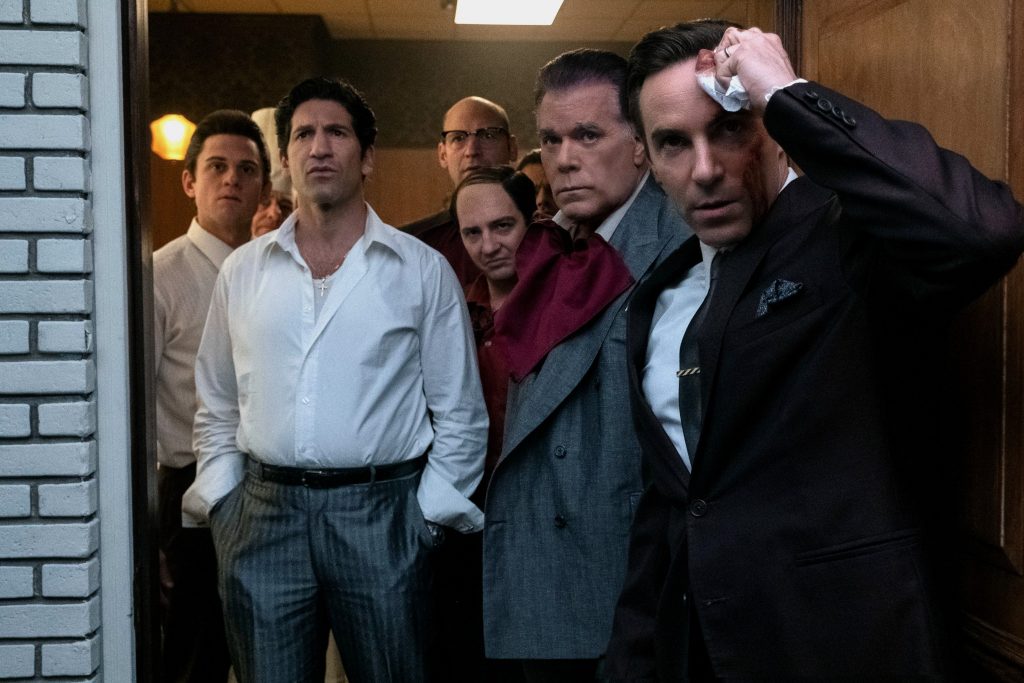



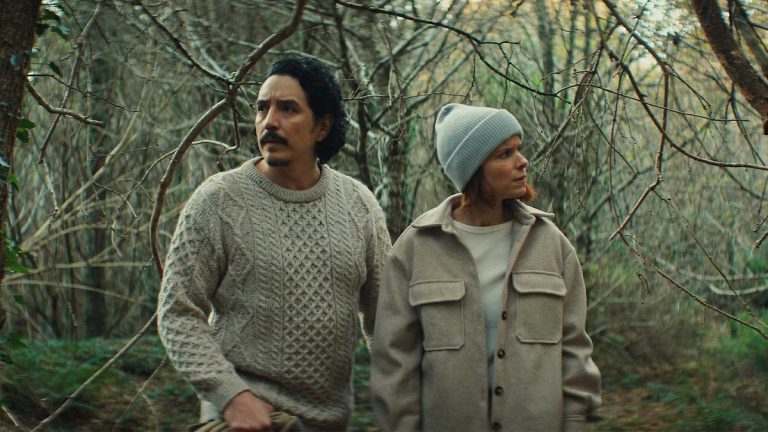
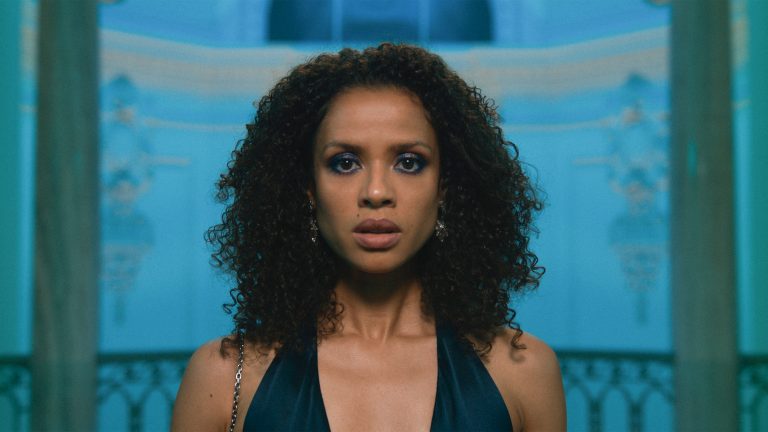
![Breathe [2015] Review: A Devastating Inspection of Emotional Turmoil!](https://79468c92.delivery.rocketcdn.me/wp-content/uploads/2015/11/maxresdefault2.jpg)
